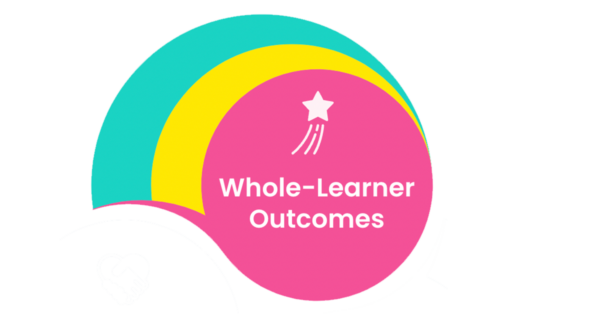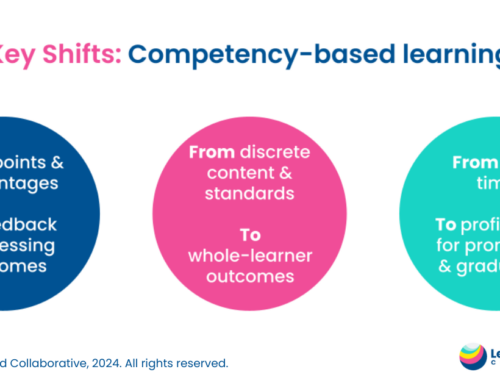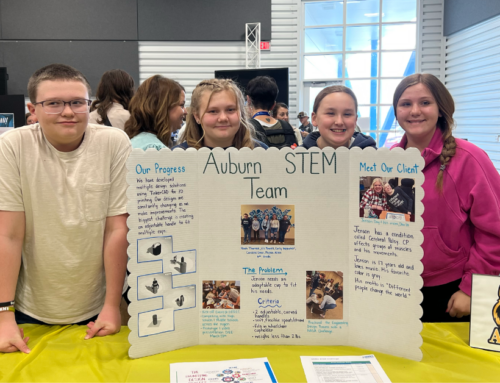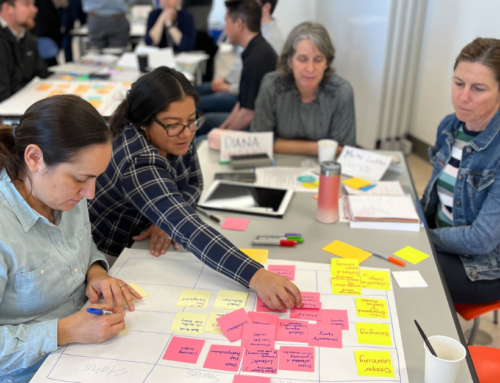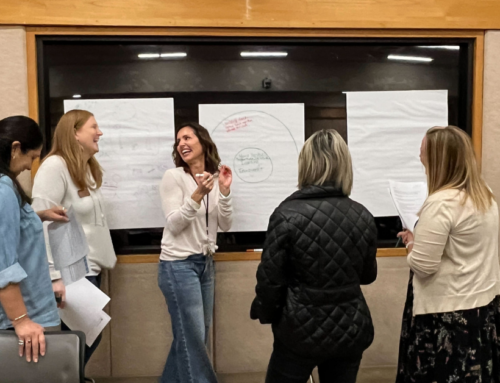I’ve noticed something that gives me great hope over the last few months. It’s a pattern that’s emerged across our Learner-Centered Collaborative partnerships and I’ve also witnessed it in conversations with family, friends, and fellow parents at the playground. Perhaps it’s the challenging state of the world—from Covid to war to climate change. Or perhaps I’m just more aware of it so I notice it more—like deciding to buy a specific car and then suddenly you see that car everywhere. Whatever the reason, it seems that we are reaching a tipping point where many are asking: What outcomes do we really want for our kids?
It’s not always stated with those exact words. I hear so many versions:
- What is the real purpose of education?
- Why does this class really matter?
- Are our kids ready for this world?
- What do these grades even mean?
- Do SATs even matter anymore?
Questions like these are being asked everywhere and it’s evidence to me that our communities are ready to more deeply examine whole-learner outcomes. While every family, school, and community is going to value different outcomes (based on their context, needs, and strengths), here at Learner-Centered Collaborative our framework names three: agency, collaboration, and real-world problem solving.
While we work with all of our partners to consider their own unique answer for what outcomes matter most to their communities, I’d like to share why I’m passionate about the three outcomes identified in our framework:
Check out Kentucky’s Logan County Schools’ vision for learners and how their desired outcomes drive work throughout the entire district in their partner case study.
Agency
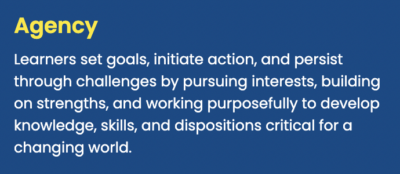
When we foster agency in learners they become adept at setting goals for themselves, initiate action, and persist through challenges. When learners purposefully develop new knowledge, skills, and dispositions they have the ability to adjust to changes in the world. Can you imagine a world where, when learners are presented with challenges, they can identify their strengths and how to apply their strengths to the situation? When I imagine that kind of world, I feel a great sense of optimism.
Collaboration
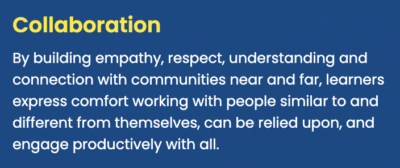
While agency develops critical aspects of self, we must also attend to a key quality of the human experience: we’re in this life together! When we foster opportunities to become better collaborators those same individuals, equipped with agency, are also comfortable working with people similar to and different from themselves. Through empathy, respect, and understanding, they engage productively with communities near and far. From DMV interactions to school board meetings to diplomatic negotiations, what possibilities would open up in a world where effective collaboration is core to how we interact with the world?!
Real-world problem solving
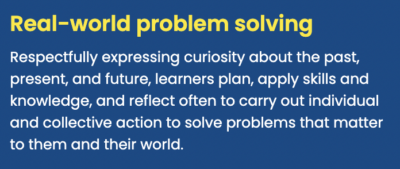
Small and big challenges surface every day and I don’t foresee that changing. When we focus on facilitating learning experiences where learners solve problems that matter to them, we develop citizens equipped to carry out individual and collective action to solve real problems in ways that develop new and better outcomes. If we were all equipped to respectfully express curiosity about the past, present, and future, we’d solve so many problems. Instead of shaking our heads in disbelief or shrugging with apathy or extreme frustration, what if we all knew how to apply our own skills and knowledge to solve problems in our world? What a utopia this could be!
What are the desired outcomes in your school or district? Share this article on social with your top 3 outcomes!
This world I imagine—one filled with people adept at exercising agency, working collaboratively, and problem-solving meaningfully—is one I want for my children. It’s the world I want for my colleagues and friends. Who am I kidding, it’s the world I want for myself! A critical first step is to identify the outcomes we want for our learners. Once we do that, the questions swirling at dinner tables and playgrounds have clear answers and actions to get there.
Looking to define outcomes and design and create the experiences and enabling conditions to successfully achieve them in your school or district? We are here to support your work! Get in touch.

